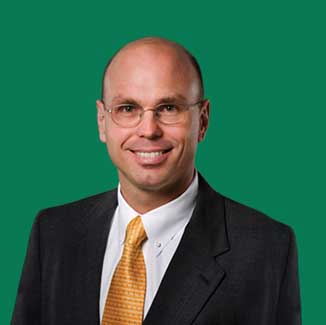Compassionate Personal Injury Attorney Explains Your Right to Compensation for Hip Pain Injuries
While modern automobiles may come equipped with state-of-art safety features, seat belts and airbags can’t prevent every injury in a serious crash. Even when every piece of protective equipment works as intended, some parts of the body remain vulnerable. Hips, for instance, absorb a tremendous amount of force from either impact or momentum. These injuries aren’t always noticeable, and symptoms often catch up to victims in the hours, days, and weeks after a crash, causing intense pain that can make even the simplest tasks seem unmanageable.
You don’t have to accept uncertainty alongside pain. I’ve spent years helping the Hurt Team at DeLoach, Hofstra & Cavonis, P.A., stand up for the rights of Sun City Center car accident victims, ensuring that survivors are afforded a fair chance to assert their rights, reclaim their independence, and begin rebuilding their lives. Here’s what you need to know about injuries resulting in hip pain and the potential for a proper recovery settlement.
Florida Car Crashes and the Risk of Hip Injuries ![X-Ray of Hip Pain After Sun City Center Car Accident]()
Car accidents are inherently traumatic events. Even at low speeds, the force generated by a collision can be tremendous—often enough to shatter safety glass, bend metal, and break bones.
In a collision, almost any part of the body could be injured. Although crashes are most often associated with fractures, organ damage, and whiplash, the positioning of a driver’s hips and pelvis creates an unusual measure of risk. This is influenced to some extent by factors including:
- A victim’s height and age
- Seat belt use, or lack thereof
- A survivor’s seating position at the time of impact
Crashes involving taller, older, or unrestrained drivers—as well as motorists sitting too far forward or back—are all associated with a much greater risk of serious hip injuries. Here are some of the most common.
Acetabular Fracture
The hip joint is a ball-and-socket mechanism. The socket, lined with smooth cartilage, is called the acetabulum. Generally, acetabulum fractures are rare, with most caused by car accidents and other high-energy events.
Even though an acetabular fracture is almost always considered a medical emergency, it’s not always immediately noticeable. In some cases, crash victims might struggle to put weight on the affected leg, but write off their difficulty as nothing more than soreness. But, if left untreated, acetabular fractures can cause serious complications, including raising the risk of osteoporosis.
Bursitis
Bursitis is a notoriously painful condition that affects the small, fluid-filled sacs surrounding many joints' support structures. Its symptoms typically include:
- An ache or “stiff” feeling around the affected joint.
- Localized pain—if you touch your hip, it might hurt.
- A red or swollen appearance around the joint.
Bursitis sometimes clears up on its own, without medical intervention, but is often debilitating enough to keep crash survivors at home for extended periods of time.
Hip Dislocation
A hip dislocation occurs when the head of the thigh bone—the femur—is pushed out of the hip socket. Dislocation often causes intense and immediate pain, and should always be treated as a medical emergency.
Hip Fracture
A hip fracture occurs when the hipbone is fully or partially broken. Hip fractures are potentially life-altering conditions that require surgery and long-term rehabilitation.
Tendonitis
Hip tendonitis is caused by inflammation to, or irritation of, one of the primary hip tendons. This injury is common among athletes but can be accelerated by sudden physical trauma, too. Tendonitis makes it more difficult to stand up, walk, and put weight on either or both legs.
Resolving Hip Pain Caused by a Sun City Center Car Accident
Hip pain can be overwhelmingly intense, or it can appear slowly in the days and weeks after an accident. However, regardless of onset, pain should never be ignored. Treatment can be intense, complex, and expensive. If your hips have started to hurt after a Sun City Center car crash, take the following steps to protect your rights.
See the Doctor
You should always see the doctor after any car accident, even if you don’t believe you were seriously injured. Some hip injuries—even those with life-altering potential—do more damage inside than out, making it difficult for victims to realize the true extent of their condition. During a thorough exam, a health care provider identifies, diagnoses, and treats any suspected problems, improving your chances of long-term recovery.
Additionally, scheduling an appointment with your physician shows the insurance company that you’re serious about your health and aren’t simply trying to profit from an unfortunate accident.
Follow All Referrals
If you have concerns about your hip, or your physician recommends seeing an orthopedic surgeon or another specialist, follow through—hip injuries are frequently misdiagnosed, and many require an expert’s input. Once your treatment plan is established, I’ll help you assess your immediate and anticipated financial needs for your accident injury claim.
Inform the Insurance Company
Even with the Sunshine State’s no-fault insurance rules, you may still have to fight to get the compensation you need for injury-related medical bills after a Florida car accident.
Your initial report to the insurance company should make note of any confirmed or suspected injuries. However, try to avoid sharing too much information with an insurance adjuster or discussing potential compensation until you’ve spoken with us. We’ve spent decades negotiating insurance claims and litigating personal injury lawsuits and will ensure that your right to compensation isn’t compromised by a big company’s concern for its profit margins.
You Can Depend on Our Sun City Center Legal Team
Depending on the circumstances of your accident, you could be entitled to a settlement for economic and non-economic damages that includes:
- Your existing medical expenses
- Anticipated care needs
- Physical rehabilitation
- Elective surgery
- Lost income from work
- Emotional pain and suffering
- Diminished earning potential
- Disfigurement


